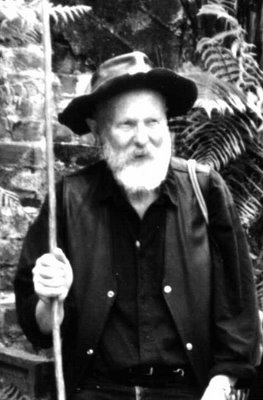
Like
The Muppets, this blog occasionally features guest stars. Today's guest star is trade unionist Kirsty McCully, and she's far cooler than John Denver, Diana Ross or the other washed-up stars Kermit and his buddies used to drag out of the woodwork. Here's an article she's written for the forthcoming issue of the
Workers Charter newspaper.
Workers fight for a Clean Start
Cleaners work for some of the richest multinational companies in the world but are some of the poorest paid service workers in the global economy. Every night in every big city around the globe, thousands of cleaners work late into the evening emptying trash, vacuuming floors, and cleaning toilets. Cleaners are an indispensable part of the global economy, but all too often they are treated like dirt by the bosses who rely on them.
In Australia and New Zealand, though, cleaners have started fighting for better pay and conditions. In April more than 1600 cleaners and supporters gathered in 10 Australasian cities to make the following pledge:
“We, the cleaners and community supporters, agree to join together to lift standards in the cleaning industry. We call on building owners and the cleaning contractors to make a clean start. We will not stop raising our voices until we win a fair deal for all cleaners. Can we do it? YES WE CAN!”
Since the Clean Start campaign was launched, cleaners and their supporters have been turning this pledge into action by rallying and picketing outside buildings owned by companies like AMP, Macquarie Bank, Commonwealth Bank and Deutsche Bank. These companies own the office buildings where cleaners work and cleaners are saying that they need to take responsibility for the cleaning work done in their buildings.
In May AMP was targeted by protests across Australasia. AMP is the largest building owner in Auckland and Wellington, and in Auckland, cleaners picketing its Price Waterhouse Coopers Tower (valued at $216.4 million) told tenants and the public that their pay was below the poverty line and that they wouldn't be ignored anymore.
A highlight of the Clean Start campaign has been this year's International Justice for Cleaners Day. International Justice for Cleaners Day was established after janitors who cleaned office buildings in Los Angeles were beaten by police during a peaceful demonstration against a multi-national cleaning company, ISS/Manchester. To remember that day janitors and supporters take action every June 15 in cities around the world.
On June 15 this year more than 200 cleaners and supporters rallied and marched in Auckland and Wellington to protest low hourly pay rates, short and broken shifts, and unrealistic work rates. Clean Start supporter and former Polynesian Panther Reverend Mua Strickson Pua spoke about the work done by ‘the Mums’ in the Pacific Island community saying “the Mums work hard, they’re the backbone of our communities and they deserve justice and respect”.
After hearing Pua speak cleaners awarded the Golden Toilet Brush Award to building owner Allco. Allco, who have links with the Kiwi-owned Strategic Finance Group, had refused to meet with cleaners, but since they received their golden brush they caved in and agreed to sign up to the Clean Start principles. With the many other multinational companies scrambling to sign up to the campaign to avoid being the focus of action, local building owners and contractors will be the next focus of the campaign, unless they meet with cleaners to discuss their concerns.
The Clean Start campaign still has a long way to go. Cleaners are up against some of the giants of Australasian capitalism as well as multinational companies, and we all know that capitalism only concedes what it’s forced to. We need to organise at the grassroots to ensure that those making the profits out of cleaners’ work can’t ignore their needs any longer.
What can you do?
Make a commitment to Clean Start by getting involved in the campaign. Whether you’re a cleaner, a union member who wants to get active in the campaign or a member of the public:
Support the cleaners’ next International Day of Action on July 20th Auckland: 12:30pm, meet at Britomart, at the foot of Queen St Wellington: 12noon, meet at Parliament, rally conciding with EPMU 90 Days action.
Come to an organising committee meeting – contact the union office for details of the next meeting
Talk to cleaners you know or work with about their job and whether it could be better – encourage them to take a stand and get involved
Ask one of the Clean Start committee to come and talk about the campaign at your union, community or workplace meeting and talk with groups you work with about how your organisation could be a part of the campaign
Ring the union office and talk to an organiser about what the cleaners are doing
Talk to your community leaders about how they can help cleaners win a fair deal
For more information contact: Kirsty McCully on 09 375 2687 or kirsty.mccully@sfwu.org.nz
Why we need a Clean Start
In the last issue of Workers Charter Don Franks argued that the Clean Start campaign was not worth supporting because it was not radical enough.
While the SFWU is appreciative of Don’s contribution to our union in the days when he was a cleaner, he ignores the current weak state of the union in the cleaning industry, the low morale and vulnerability of many cleaners, and the strength of the companies that exploit cleaners. For cleaners, the Clean Start campaign is a step in the right direction, not a final destination. A long journey starts with a single step, and sometimes that first step can be the most important.
Don argues that the Clean Start principles are about 'disciplining' workers, because they promise that cleaners will 'maintain high standards of service'.
As Don should know, cleaners already provide a high standard of service - what they are demanding is better pay and conditions in return for their service.
Don discusses the 70c increase over two years that cleaners won last year. He points out that this increase is far below what cleaners need, and suggests that cleaners should fight for pay parity with their Aussie comrades.
The SFWU agrees that last year's pay increase was pathetic, and would love to see Kiwi cleaners win pay parity. But, as Don himself notes, union membership among cleaners is at its lowest point ever.
Cleaners can't win a big fight like the fight for pay parity unless they unionise more of their sector, mobilize their comunities and become more confident and organised. Clean Start is intended as a step in that direction - it's an attempt to bulk up the union so that it has the muscle to fight for bigger and better things in the future.
The Clean Start principles seek to ensure that contractors hired to provide cleaning services commit to providing better jobs with better pay and conditions, and understand their obligations to their workforce.
These goals might seem modest to Don, but if they are achieved they will have a massive positive impact on cleaners. They will lift many cleaners out of poverty, give them more time to spend with their families, and make them more confident and more capable of fighting for bigger and better things.
If Don and his readers need any more convincing about the need to support the Clean Support campaign, then they should talk to some of the members who have thrown themselves into that campaign, sacrificing precious leisure hours and in some cases precious income as well.
Here is a statement from a rank and file cleaner involved in the campaign:
My name is Vai, I’m a cleaner in Wellington and I have a family to feed and put through school. I earn low wages - I only get enough each week to pay the bills.
I never really thought about what it’s like working night or day or both - we need the money so I just fit it in. I’ve got 7 kids and I’m a single parent so my family has to help me out too.
My job is a long way away from home - I had to buy a car just so I could get to work and get around at night. I always end up doing extra work – sometimes because people get sick a lot and don’t show up for work, and sometimes just because there aren’t enough of us to do the job in the hours they give us.
The staff turnover is bad and the bosses make it worst by throwing new staff in the deep end so they don’t last long, and so it goes on.
The management change all the time too – I’ve had 3 bosses since I started on this site and none of them know as much as me about the work because I’ve been a cleaner for 15 years.
The bosses need to understand that I do this work because I would like a better life for my kids. A better education for them. I do not like receiving the benefit I would rather they pay me a decent wage.
That is why I put up with their shit! It's for my children. “Out e le mano e ola ae lau fanau ise olaga ausage ma ola falo’lo” I do not want my children to grow up living a life dependent on others.
When I get home I’m tired and I ache, but I have to keep going to look after the kids. Quality of life? HA! Never thought of it that way - I just work and look after the family. What a life eh.
Yeah I’d like my job to be different – better hours, more money, more time to do the work. The best thing about my job is my workmates. and we can see that if we get together and people help us, we can fight to get better jobs and better pay.

 It seems appropriate, then, that Lopdell House should be the venue for a sequence of lithographs by Marian Maguire, a printer and painter fascinated by the relationship between Europe and these islands. Maguire's lithographs collage Greek, colonial British, and Maori images to create imaginary encounters between all three cultures. At Lopdell House ancient Greeks eye Cook's Endeavour from southern shores; Ajax and a Maori chief play chess; and Athena observes a skirmish between the 'discoverers' of New Zealand and the people of Aotearoa.
It seems appropriate, then, that Lopdell House should be the venue for a sequence of lithographs by Marian Maguire, a printer and painter fascinated by the relationship between Europe and these islands. Maguire's lithographs collage Greek, colonial British, and Maori images to create imaginary encounters between all three cultures. At Lopdell House ancient Greeks eye Cook's Endeavour from southern shores; Ajax and a Maori chief play chess; and Athena observes a skirmish between the 'discoverers' of New Zealand and the people of Aotearoa. 


































